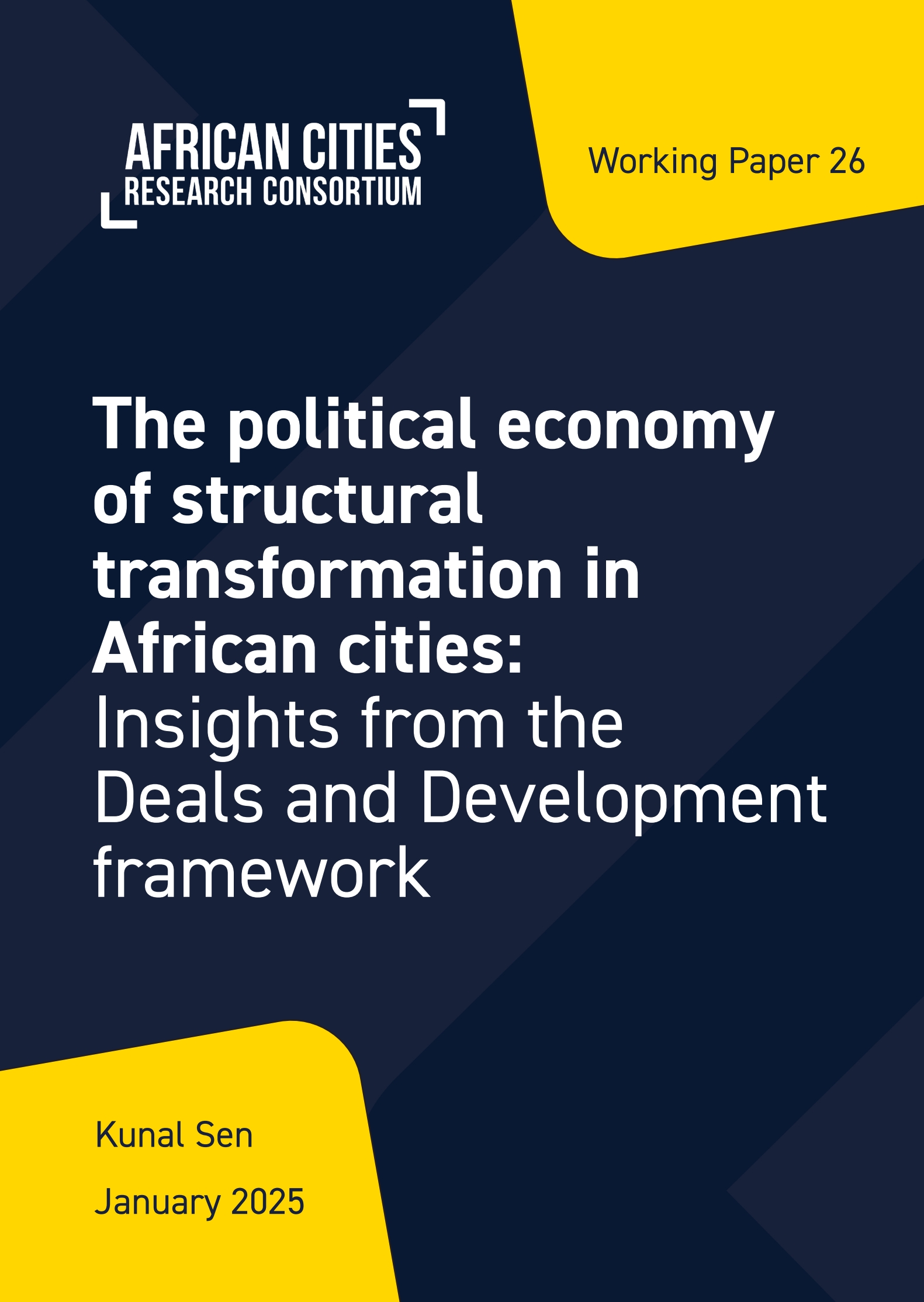The political economy of structural transformation in African cities
Insights from the Deals and Development framework

This working paper examines why urbanisation in African cities has not led to structural transformation, using the Deals and Development framework to highlight the role of political economy dynamics (PDF, 1.22MB). It argues that firms in productive sectors like manufacturing and tradeable services face unstable or unpredictable business environments (semi-ordered or disordered deals), which discourages long-term investment and growth. Meanwhile, political and economic elites benefit from stable, exclusive deals in less productive sectors such as construction, real estate, and utilities, which offer quick returns but raise costs for other sectors and undermine broader economic development. The paper concludes that addressing Africa’s urban development challenges requires looking beyond traditional economic explanations and focusing more on the political incentives and power structures that shape urban economies.
Abstract based on original source.


Comments